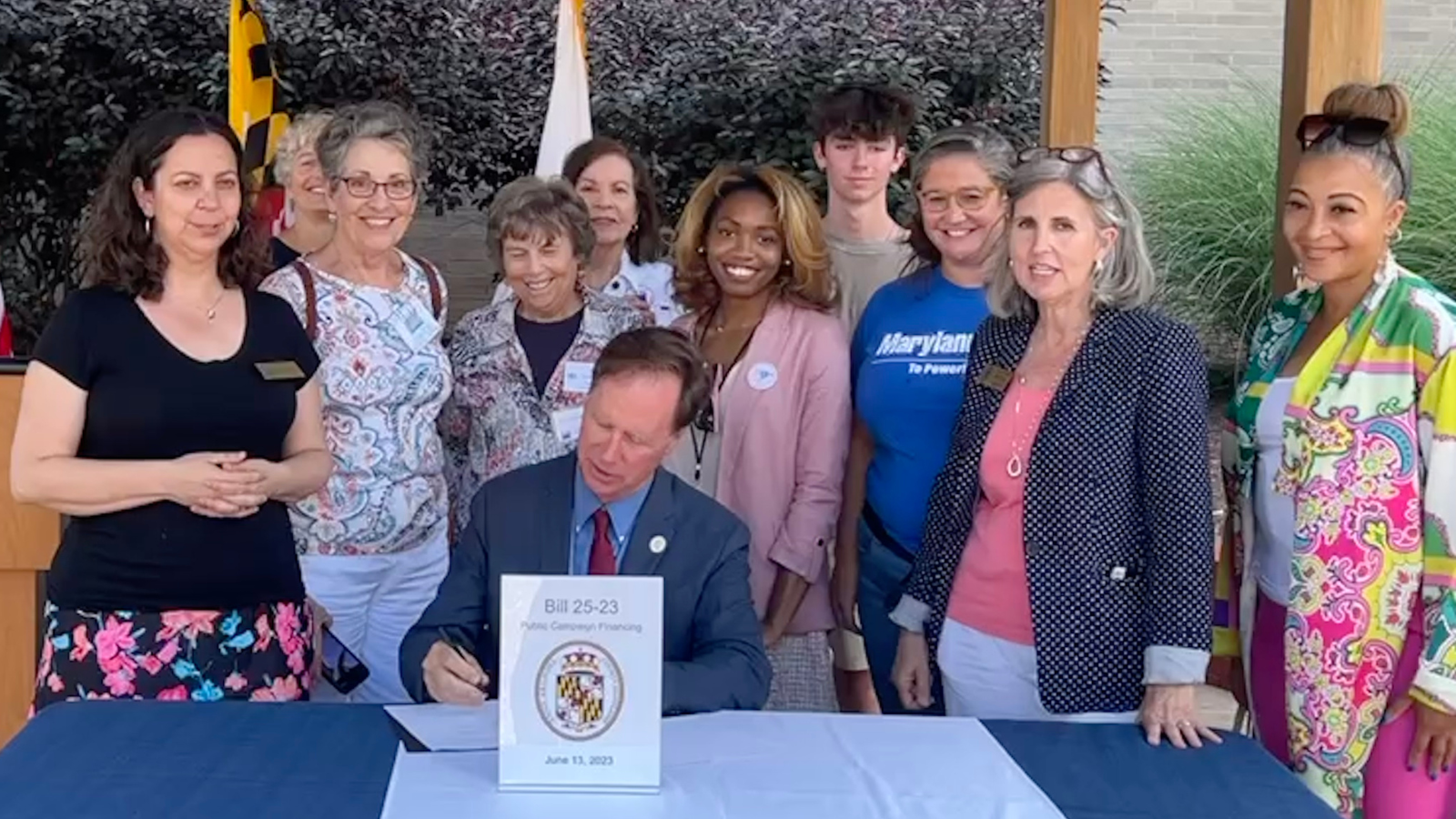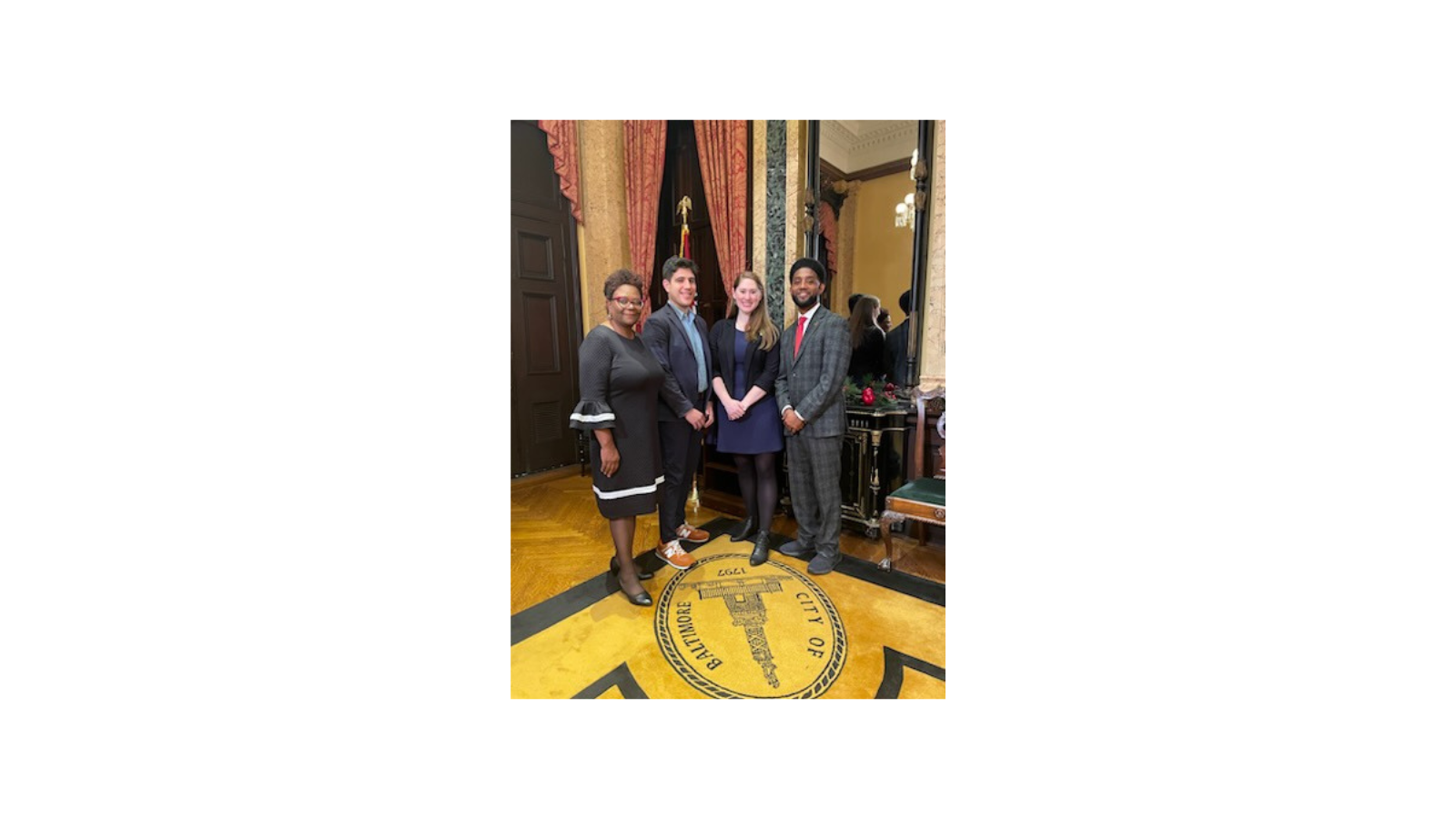
Support: The Secure and Accessible Registration Act
Maryland PIRG is pleased to support The Secure and Accessible Registration Act (SB1048/HB152), sponsored by Senator Smith and Delegate Luedtke.
Maryland PIRG is pleased to support The Secure and Accessible Registration Act (SARA) (SB1048/HB152), sponsored by Senator Smith and Delegate Luedtke.
SARA streamlines the voter registration process, seamlessly registering eligible voters and updating voter registrations through an opt-out process when Marylanders interact with certain agencies. This will make our voter rolls more accurate and secure, increase efficiency, and expand voter participation.
Below is our testimony in support of this bill.
Testimony on SB1048/HB152: The Secure and Accessible Registration Act
POSITION: SUPPORT
Maryland PIRG is a state based, citizen funded public interest advocacy organization with grassroots members across the state and a student funded, student directed chapter at the University of Maryland College Park. For forty years we’ve stood up to powerful interests whenever they threaten our health and safety, our financial security, or our right to fully participate in our democratic society.
Maryland PIRG strongly supports the Secure and Accessible Registration Act (SARA).
A functioning democracy depends on the participation of its citizens. Every American – Republican, Democrat, Independent – has a fundamental right to vote and have their voted counted. Our Democracy works best when everybody makes his or her voice heard on Election Day. Voting also serves as a building block to more active involvement in civic life.
We should make every effort to increase voter participation by making voter registration and the act of voting as simple and accessible to all eligible voters as possible. Unfortunately, many eligible Maryland voters are not voting, due in part to our outdated system of voter registration.
Many Marylanders, especially young Marylanders, are not participating in elections. In the 2016 presidential election, turnout in Maryland as a percentage of the voting population was at its lowest in 24 years. In 2014, only 42% of youth between the ages of 18-24 were registered to vote before the election, compared to 74% of over 25-year-olds.[1] Numerous studies have shown that voting is habit forming, and youth who vote are more likely to become life-long voters. Likewise, young people who are registered to vote turn out in high numbers, very close to the rate of older voters. The voter registration gap in young people is a driving force in low youth voter participation.
In Maryland PIRG’s 40-year history of working with young people and running non-partisan voter registration drives, we have found that most young people want to and intend to participate in voting, but as new voters, they often struggle to navigate the voter registration system or forget they need to update their registration every time they move.
During the 2014 midterm elections, for example, Maryland PIRG students helped register and turn out thousands of University of Maryland students to vote, resulting in a 25% increase in voter participation, the highest turnout at the campus polling location in the last six midterm elections. If you ask students to vote and help them navigate the system, they will.
Marylanders can update their registration addresses or register for the first time during Early Voting. Nearly 20,000 Marylanders used the program in 2016. The Secure and Accessible Registration Act, a form of Automatic Voter Registration (AVR), would work hand in hand with Early Voting and Election Day Registration to streamline the registration process, seamlessly registering voters and updating voter registrations when Marylanders interact with certain agencies.
Under the National Voter Registration Act (NVRA) of 1993, also known as Motor Voter, when an individual applies for a driver’s license or state ID, the Maryland Vehicle Administration is required to provide them the opportunity to register to vote. NVRA requires the same of certain state social service agencies.
In current NVRA practice, individuals must opt in to registering, i.e. they must affirmatively take action to fill out a voter registration application at the agency, even if the agency already has the necessary information for a completed application. The Secure and Accessible Registration Act changes this process from opt-in to opt-out. That is, when an eligible citizen interacts with the Drivers Services or another NVRA state agency, the agency will use the existing information they have to complete a voter registration application, unless the individual affirmatively declines registration.
Variations of this practice exist in most developed democracies. In the United States it was first passed by Oregon three years ago, and in its first year of implementation has seen great success. In the first three months of implementation, Oregon registered over 34,000 voters through motor voter, while before they averaged 2,000 people a month. As AVR is being debated in many states around the country, it has gained bi-partisan support in states as diverse as Vermont, Washington, Illinois and West Virginia.
There are many reasons to support the Secure and Accessible Registration Act.
- It will strengthen our democracy by adding more eligible Maryland voters to the rolls and making it more likely they will participate in elections.
- It will make our voter rolls more accurate and secure by eliminating much of the human error that comes with paper forms, by more frequently updating records when people move, and by eliminating duplicate records. SARA has multiple mechanisms to ensure that individuals who are not eligible to vote are not registered. By making our voter lists more accurate, this proposal will reduce the chance that anyone will be able to take advantage of gaps in our system.
- For many of the same reasons it will make registrations more accurate, it is also more efficient and will save taxpayers money. While there will be some initial implementation expenses, it should save taxpayers money over time. Of the 29 states that tracked cost savings of electronic and online registration, there was unanimity that they reduce costs.
- SARA will improve election administration for elections officials. Local elections officials often deal with a surge at voter registration deadlines. SARA will “smooth out” voter registration, saving elections officials time and resources in the busy election season. It will also reduce the number of voters who use Election Day registration.
- By updating our voter registration process we can: encourage first time and young voters; we can increase civic participation; and, we can build a more functional democracy.
We respectfully request a favorable report on the Secure and Accessible Registration Act.
[1] The Center for Information & Research on Civic Learning and Engagement (CIRCLE),
Topics
Authors
Emily Scarr
State Director, Maryland PIRG; Director, Stop Toxic PFAS Campaign, PIRG
Emily directs strategy, organizational development, research, communications and legislative advocacy for Maryland PIRG. Emily has helped win small donor public financing in Baltimore City, Baltimore County, Howard County, Montgomery County, and Prince George's County. She has played a key role in establishing new state laws to to protect public health by restricting the use of antibiotics on Maryland farms, require testing for lead in school drinking water and restrict the use of toxic flame retardant and PFAS chemicals. Emily also serves on the Executive Committees of the Maryland Fair Elections Coalition and the Maryland Campaign to Keep Antibiotics Working. Emily lives in Baltimore City with her husband, kids, and dog.
Find Out More

Small donor public financing victory in Anne Arundel County

Anne Arundel County Considers Small Donor Public Financing

Mayor Scott swears in Fair Election Fund Commissioners

